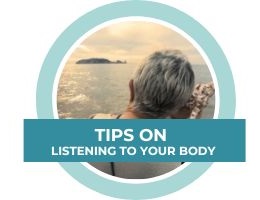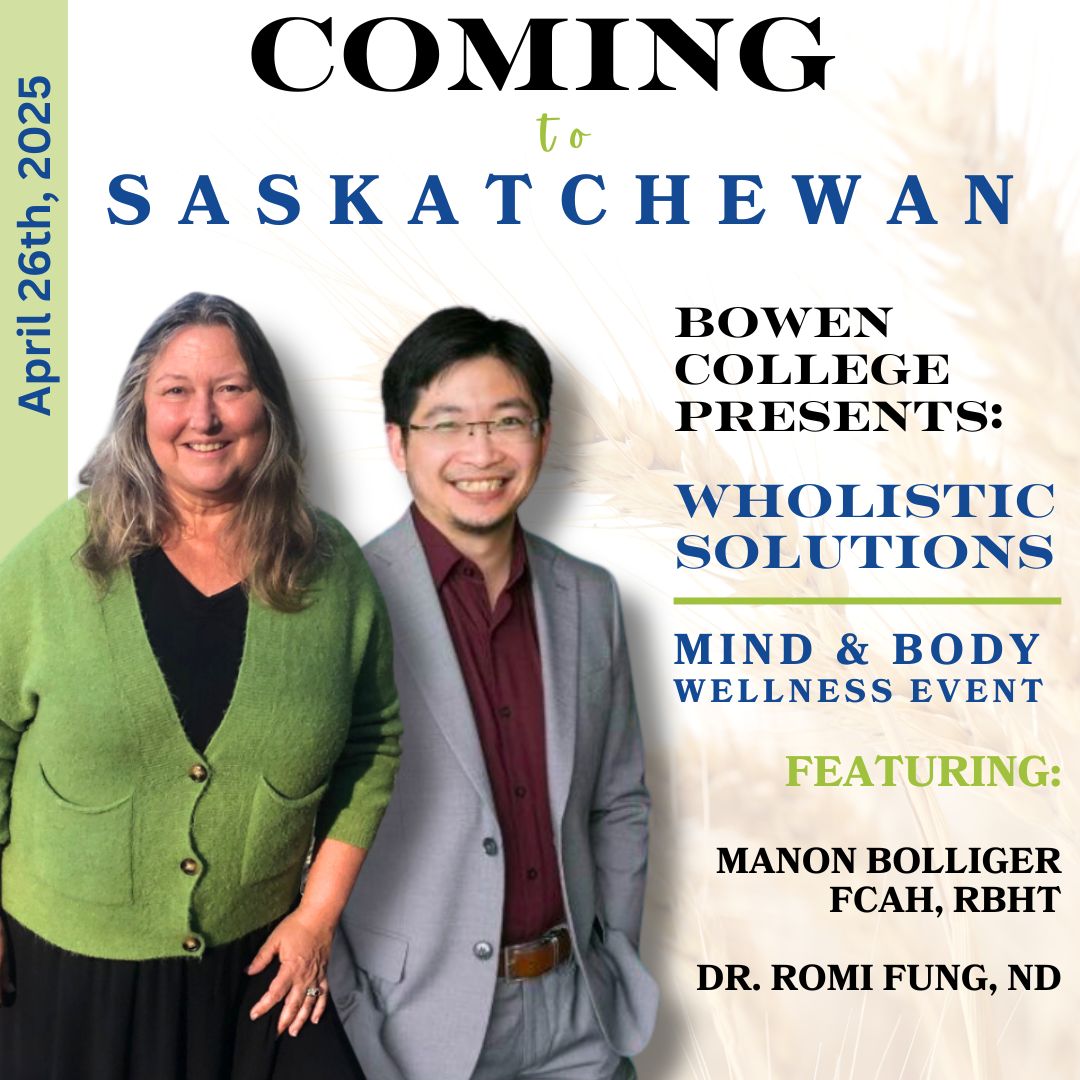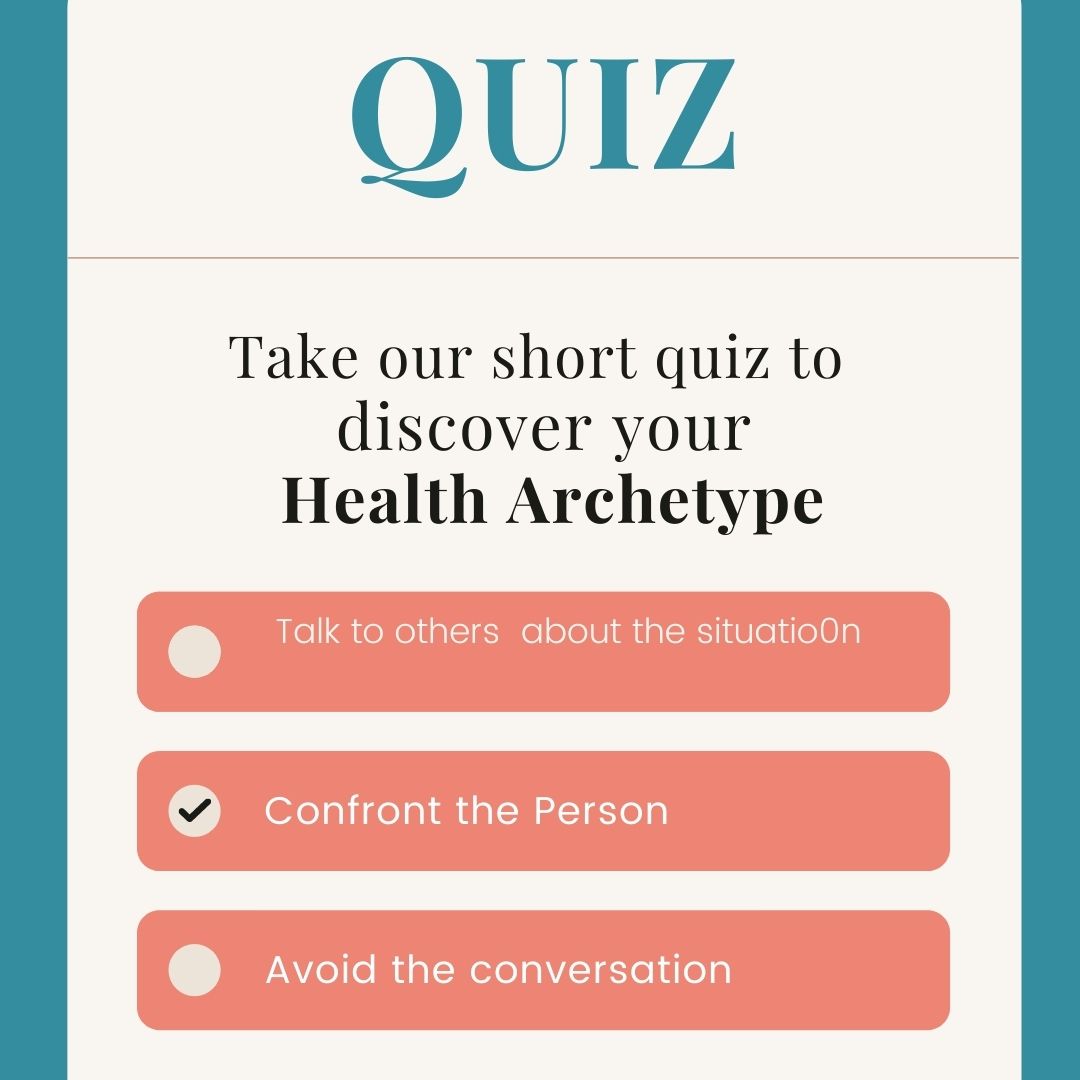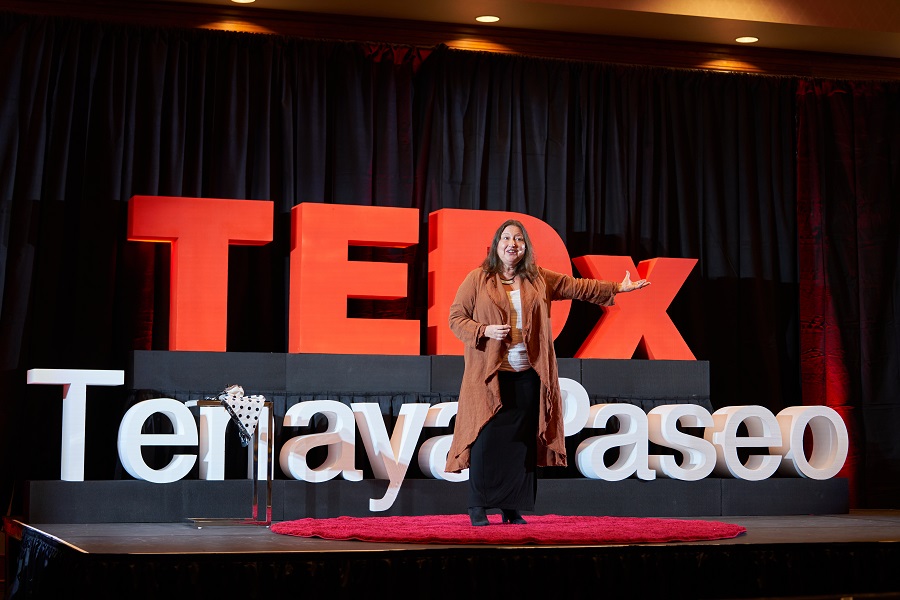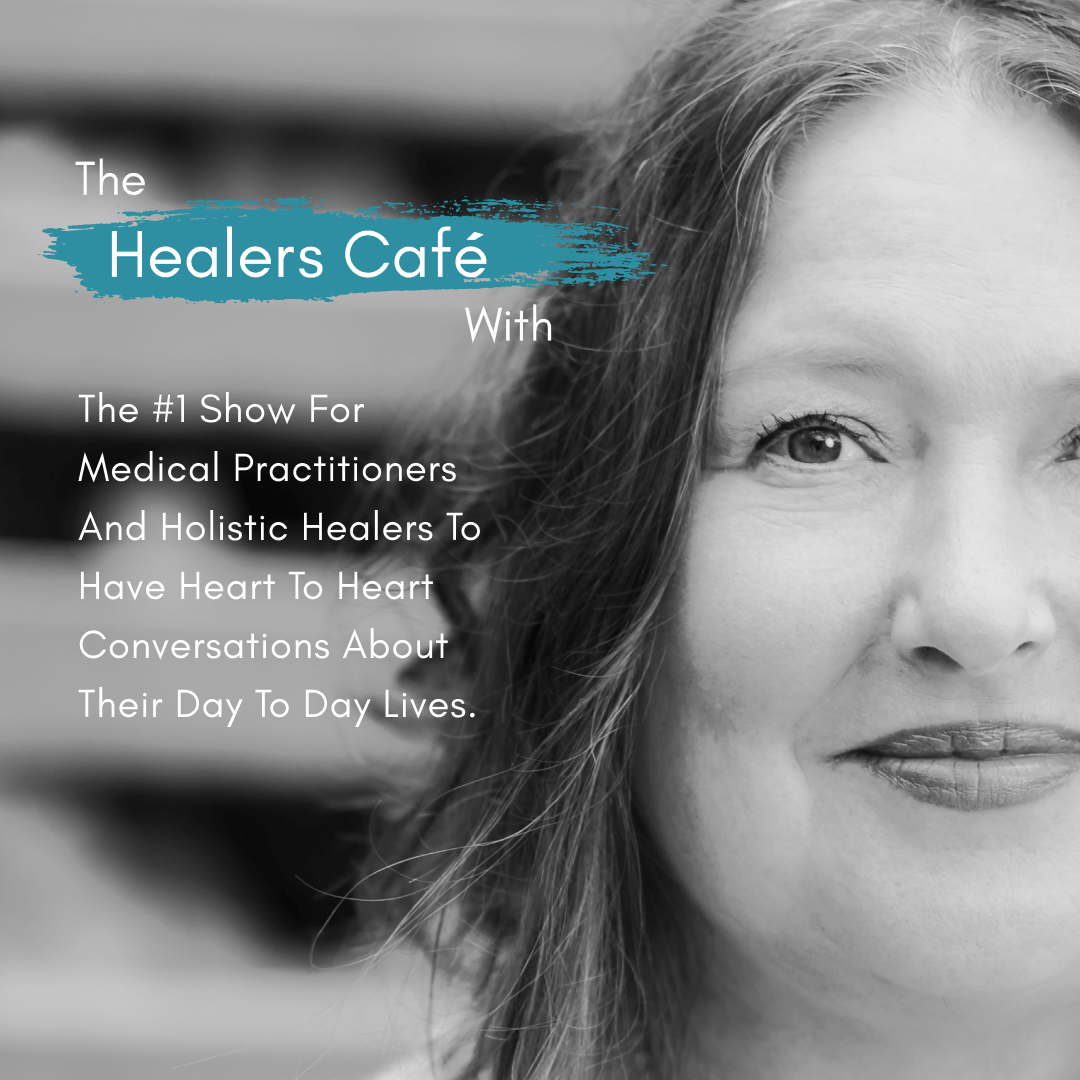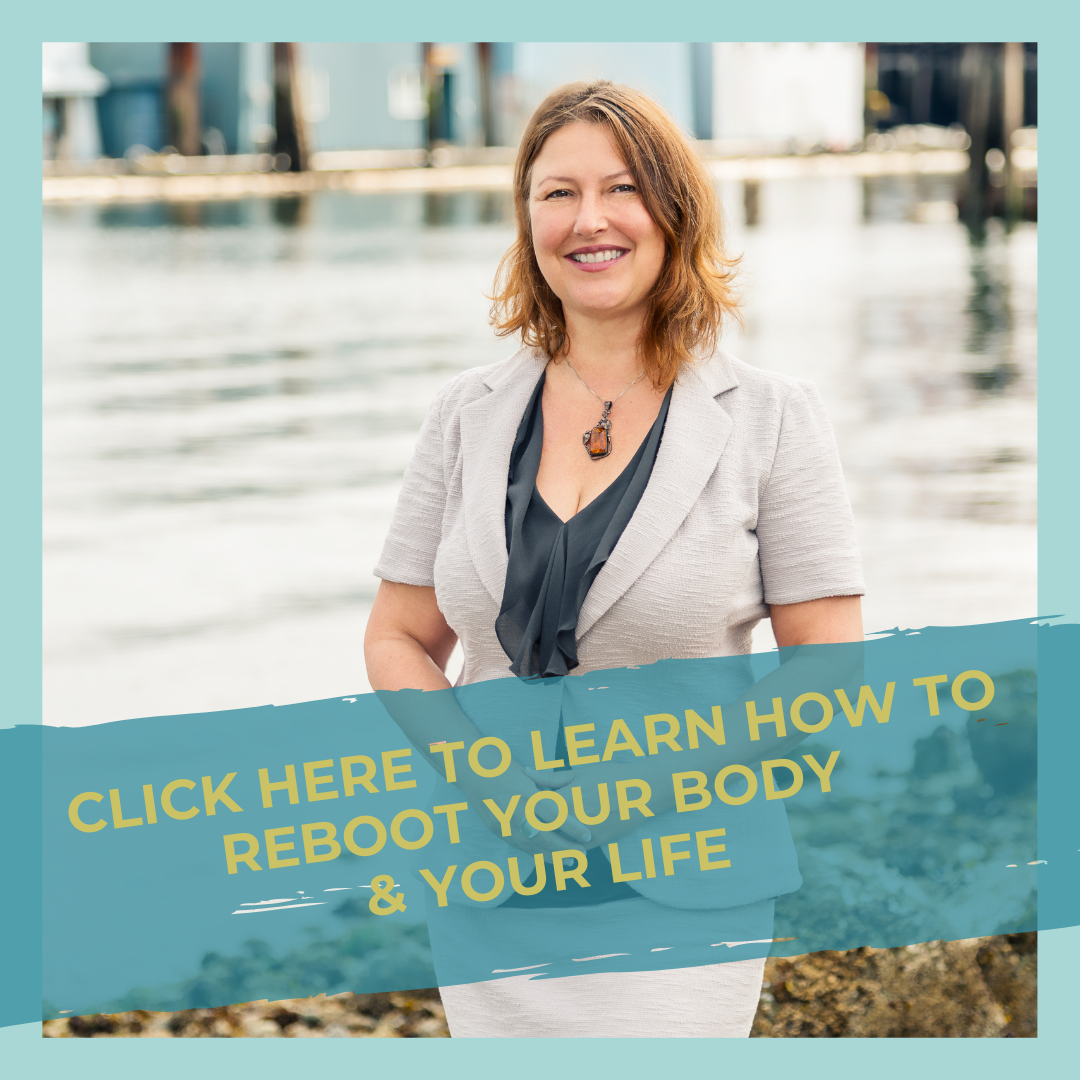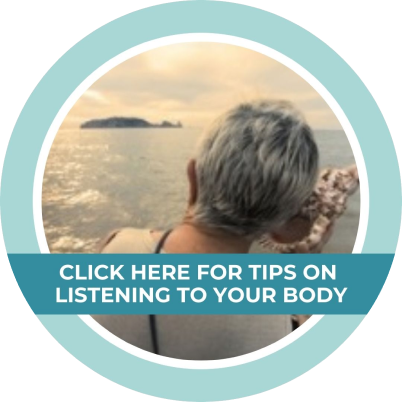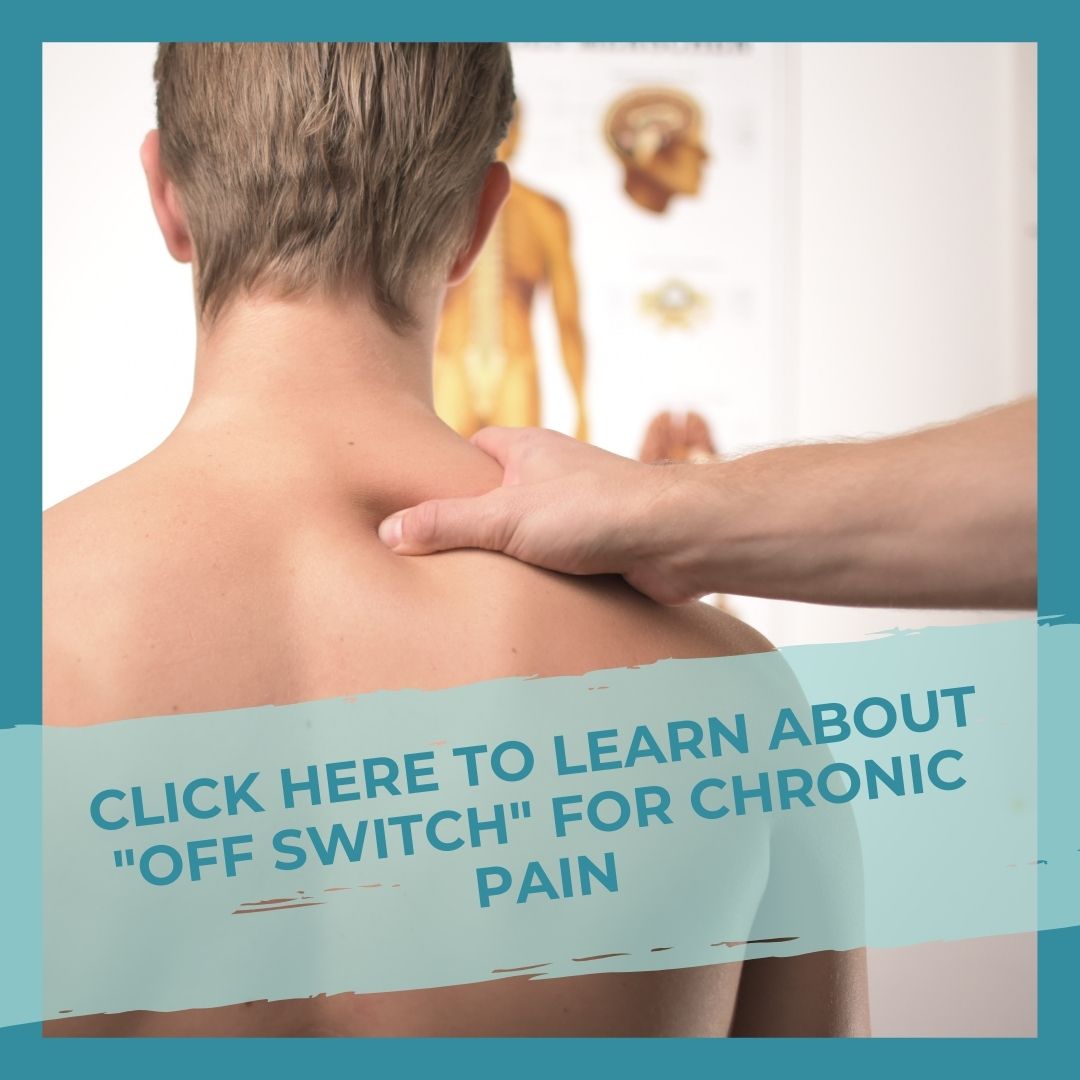
The #1 show for medical practitioners & holistic healers to have heart to heart conversations about their day to day lives.
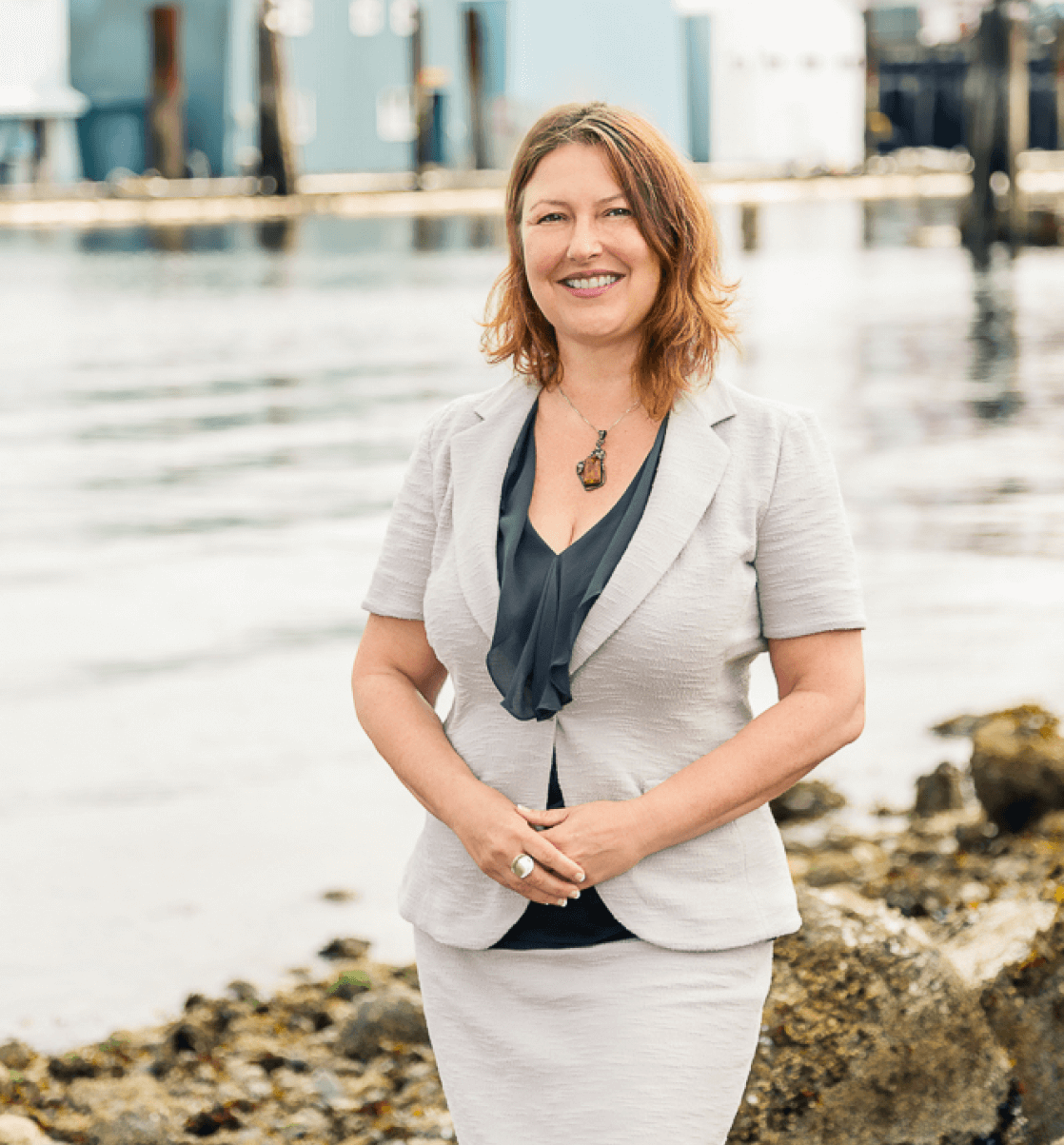
Manon Bolliger (Deregistered with 30 years of experience in health)
iTunes | Google Play | Spotify | Libsyn | iHeartRadio | Gaana | The Healers Cafe | Radio.com | and many more
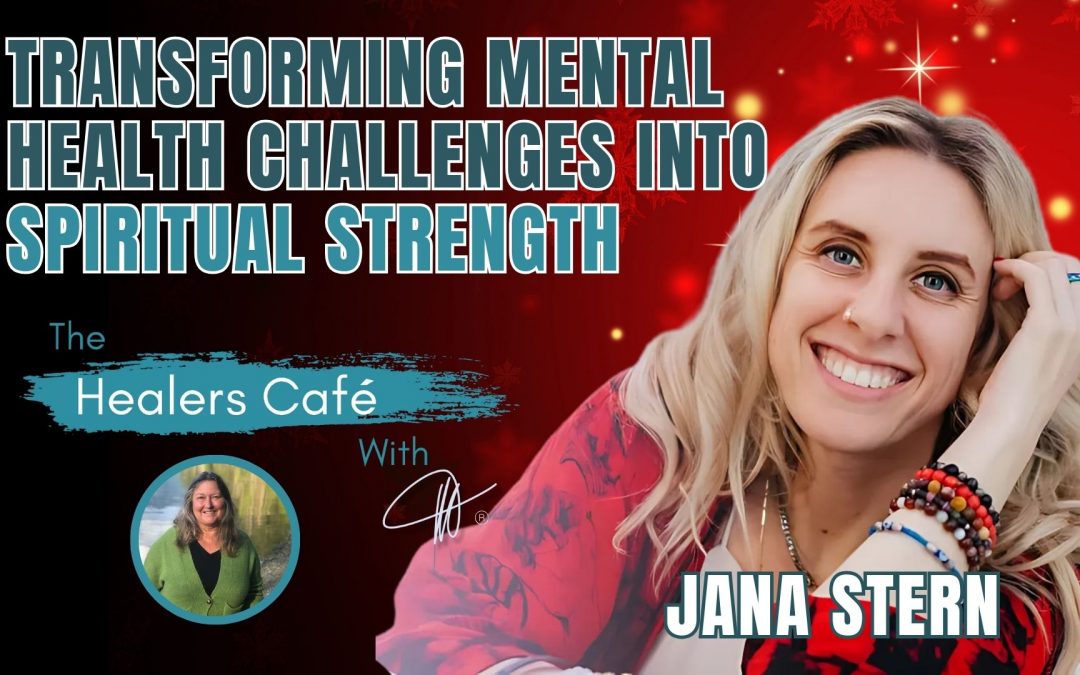
Jana Stern
Transforming Mental Health Challenges Into Spiritual Strength – Jana Stern on The Healers Café
In this episode of The Healers Café, Manon Bolliger, FCAH, RBHT, speaks with Jana Stern about her journey of overcoming mental health challenges, embracing spirituality, and empowering others to tap into their intuition and resilience through holistic and intuitive practices.
Highlights from today’s episode include:
Jana Stern 07:59
Correct. Yeah. And that’s, that’s a lot of what I teach is about like learning to understand what your intuition even feels like. Because we’ve been so classically trained and mind warped and brainwashed to believe that our intuition is wrong, because it usually takes us outside of the norm, right? It takes us away from the pack.
Jana Stern 09:37
Sure, yeah. I think in order to stand up and stand in your truth. Whatever your truth is, it does…it requires a level of resilience. It requires a level of trust in yourself and willingness to go against the grain, like you were saying earlier, swim upstream no matter what.
– – – – –
– – – – –
Manon Bolliger 23:20
I created Bowen College, I teach a natural pain elimination method, and we, we definitely work with, you know, trauma, mind, body, spirit. It’s not a physical therapy, only the way you go through the body, which I think is really amazing.
ABOUT JANA STERN
Jana Stern is a psychic, astrologer, and spiritual activator with over 15 years of expertise and a lifelong connection to her psychic lineage. Born and raised in Toronto, Canada, Jana is part of a lineage of gifted psychics that includes her grandmother and great-grandmother, both recognized for their psychic abilities and deep understanding of astrology. Founder of The Resilience Revolution and host of & I’m Really Into That Stuff” podcast, she empowers clients through tailored spiritual practices. A certified Life Activation™ practitioner, Jana blends metaphysical knowledge with practical tools for transformation. Her mission: to integrate spirituality with mental health to create profound societal change.
Core purpose/passion: My mission is to bridge spirituality and mental health. I believe spirituality is part of how we solve the mental health crisis.
Website | Facebook | Instagram | LinkedIn | Twitter | YouTube
ABOUT MANON BOLLIGER, FCAH, RBHT
As a recently De-Registered board-certified naturopathic physician & in practice since 1992, I’ve seen an average of 150 patients per week and have helped people ranging from rural farmers in Nova Scotia to stressed out CEOs in Toronto to tri-athletes here in Vancouver.
My resolve to educate, empower and engage people to take charge of their own health is evident in my best-selling books: ‘What Patients Don’t Say if Doctors Don’t Ask: The Mindful Patient-Doctor Relationship’ and ‘A Healer in Every Household: Simple Solutions for Stress’. I also teach BowenFirst™ Therapy through Bowen College and hold transformational workshops to achieve these goals.
So, when I share with you that LISTENING to Your body is a game changer in the healing process, I am speaking from expertise and direct experience”.
Mission: A Healer in Every Household!
For more great information to go to her weekly blog: http://bowencollege.com/blog.
For tips on health & healing go to: https://www.drmanonbolliger.com/tips
SOCIAL MEDIA:
– Linktr.ee | Rumble | Gettr | Facebook | Instagram | LinkedIn | YouTube | Twitter |
About The Healers Café:
Manon’s show is the #1 show for medical practitioners and holistic healers to have heart to heart conversations about their day to day lives.
Subscribe and review on your favourite platform:
iTunes | Google Play | Spotify | Libsyn | iHeartRadio | Gaana | The Healers Cafe | Radio.com | Medioq | Audacy |
Follow The Healers Café on FB: https://www.facebook.com/thehealerscafe
Remember to subscribe if you like our videos. Click the bell if you want to be one of the first people notified of a new release.
* De-Registered, revoked & retired naturopathic physician after 30 years of practice in healthcare. Now resourceful & resolved to share with you all the tools to take care of your health & vitality!
TRANSCRIPT
Introduction 00:00
Welcome to the Healers Café. The number one show for medical practitioners and holistic healers, to have heart to heart conversations about their day to day lives, while sharing their expertise for improving your health and wellness.
Manon Bolliger 00:17
Well, welcome to the Healers Cafe, and today I have with me, Jana Stern, she’s all about the resilience revolution, and that is a six month coaching journey in a group setting designed to facilitate personal and spiritual resilience through tailored coaching and holistic health techniques. Now she has a lot more when I say that’s all there’s to it, but that is certainly one of the focuses that we’re going to talk about here. But she has been a psychic and astrologer, a spiritual activator with over 15 years of experience and has a lifelong connection to her psychic lineage. She’s actually born in Toronto, Canada, and well, let’s stop with all of that, and let’s welcome you here. Thank you so much. I’m really thrilled to ask you, well, how did it all start? First of all, how did, how did you know? How you know, like, what’s, what was the journey of the first discoveries?
Jana Stern 01:30
Yeah, you know, I believe that mental health and spirituality are these, like, deeply enmeshed things, and that’s because I grew up with a father who was mentally unwell, and so I experienced that firsthand through him. And then went on my own journey of blocking out my psychic gifts. I could always hear crystals as a child, and I could hear gift. I could hear spirit communicating, and it was very invasive, and it turned out that hearing voices was not a good thing in some circles, and so I started to block it out. And in doing so, went through my own journey of deep, dark mental health issues, eating disorders, you know, depression. They diagnosed me bipolar. Then they were like, no, just kidding. It’s actually this other thing called borderline personality. And then they were like, maybe it’s not that. They put me on this crazy journey of trying to find the right medications. And in that process, I kind of gave up, fed up, and swallowed a bunch of pills, had a little journey to the other side for 11 minutes, and came back and was like, Wait a minute. Hold on. I’m here for a reason, and I the reason is to actually talk about the things that I…that most people didn’t want to talk about, certainly, you …..
Read more...
know, 30-40, years ago. And so, yeah, it’s been a process since then, of deep healing. I started seeing a spiritual psychotherapist who taught me about meditation and oracle cards. And then we started to go deeper into the realms of metaphysics. I met a wonderful woman who taught me about metaphysics and healing, and I received a number of healings from her. And then I was like, Oh my God, these work. I gotta learn them. I gotta teach them. And so I started to do that. And my grandmother, on my father’s side was…is somebody who was always practiced astrology, you know, she was the, you know, the kooky one in the 60s and 70s. Who would, you know, she’s got birth charts from, you know, decades and decades before I was even born, that break down, you know, the charts. And it’s just like, the coolest thing. So, you know, I just kind of dove further into it and let myself kind of go all the way off the deep end, because I think that that’s actually where the magic is. And so, you know, I sort of help people to remember that the mental health crisis you’re having is because the system is designed for you to stay that way, and if you’re feeling crazy, it’s because there’s a bigger reality out there that we don’t really tap into, but your spirit yearns for it, and so your mind goes a little wacky because you’re trying to believe this reality, but it’s not really believable anymore.
Manon Bolliger 04:14
Well, even less so you know, in the last awakening we could call it so people now are kind of having issues, which is interesting, and it’s interesting we have a so called increase in mental disorders, you know? But, yeah, so well, let’s talk a little bit about mental disorders. And what have you come to understand about that.
Jana Stern 04:42
We are deeply poisoned, and the, you know, the food that we put in our body doesn’t nourish our minds, the ways that we live. You know, Netflix, scrolling on the phone for hours, not, you know, not doing things that are good for our mind or our bodies or our spirits. Of course, we’re depressed. And also, of course, you know all of the media that’s telling us what to think, and that all the things that we should think, according to them, is be fearful, comply, do what they say. And also, everything is going to end, and you better be terrified about it. And so, you know, we’re having a mental health crisis, because it’s what they’re creating. Because, by the way, what then comes from that is then they have a lot of patients who need a lot of medication, and then that cycle perpetuates. And you know, I’ve seen more positive results with meditation. Now, let me say, if you need these drugs, if you need these medications, stay on them, but if you want to get off of them, there are ways to free yourself from the system. And I think we kind of need a balance of both. We don’t only need Western and we don’t only need Eastern medicine. I think we need the two to come together. And actually, when we look at these ancient practices, you know, that tap into the different sources of power that we have, most of them solve the problems of what our modern world wants us to believe are, you know, conspiracy. And I think that we’re really moving in a direction where it’s sort of undeniable that we’ve been lied to about, at least something. You know, I’m sort of of the mindset like, if you don’t believe in any conspiracies, like, you’re a crazy theorist, like, you just believe in just straight up reality. Like, that’s bold at this point. And so, yeah.
Manon Bolliger 06:41
Yeah, it’s propaganda.
Jana Stern 06:43
100%
Manon Bolliger 06:44
With the permission of calling it propaganda on the people, right? I mean, that it was actually put into law, right? It’s not just reality. Yeah, that’s, that’s the shocking part. I think most people don’t realize that. You know, whether it’s in the media department or in the Health Department, where, you know that’s another thing, is if you give people powers to govern you, especially when they become global, or they tried anyways, they failed. Yes, that’s the good news. But you know, you start to think that there is just one way and that they somehow know better, right? That’s how it’s and then, then we’re divorced from it. You know, it’s really shocking. You know, like, who knows better about your health than you? And I’m saying this as a non doctor anymore, but told my patients, look, you actually know the answer here. So let’s, let’s, let’s talk about different people’s answers to this, if you want, but I want to know which one really feels like a truth to you that comes from inside, you know.
Jana Stern 07:59
Correct. Yeah. And that’s, that’s a lot of what I teach is about like learning to understand what your intuition even feels like. Because we’ve been so classically trained and mind warped and brainwashed to believe that our intuition is wrong, because it usually takes us outside of the norm, right? It takes us away from the pack. And, you know, learning to trust your intuition is a game. It’s, it’s, and you gotta kind of work those muscles consistently, because the system will always give you an opportunity to go back to the humdrum of believing in one thing or another. That is, you know truth, but your truth is so much bigger, and most of us don’t even know what our bodies feel like. Like many, many people don’t ever you know scan their bodies. What is what? Unless there’s pain, we don’t know how to feel good feelings. We only know how to feel pain feelings, and that in itself, is like a giant red flag. You know, we’re just, we’re we’ve been given all the wrong tools, I think. And you know, my, my mission in this world is to give the right tools.
Manon Bolliger 09:17
Yeah, well, I think now people are open to it. They’re wanting it.
Jana Stern 09:23
Yes
Manon Bolliger 09:24
I think that’s the that’s the great thing you know so well. I want to know why you use the word resilience in your in your project.
Jana Stern 09:37
Sure, yeah. I think in order to stand up and stand in your truth. Whatever your truth is, it does…it requires a level of resilience. It requires a level of trust in yourself and willingness to go against the grain, like you were saying earlier, swim upstream no matter what. And so that strength training is something that you have to keep going at, even when everybody has something to say. You know, when you start to really tap into your intuition and and use your gifts. So many people in your world will challenge it. Your partner will challenge it, because they expect to protect you to be a particular way. Your parents, your children, even sometimes you’re they look at themselves in the mirror. To the path back to yourself is really difficult.
Manon Bolliger 10:34
Could you repeat that because we had a funny internet moment. Yeah, that everyone in your family and will challenge you, and then it kind of cut off,
Jana Stern 10:46
Yeah, that they’ll, they’ll challenge you. And if they’re not looking at themselves in a particular way, like if they’re not looking at themselves in the mirror, the way that you’re looking at yourself, you know, with critical eyes, but also with self loving eyes, which is sort of the balance there of when you are following your intuition, that’s that’s kind of how that dance works. You’re like, I’m being a jerk, but also I deserve to feel good, but also I’m being a jerk, but also I deserve to feel good. And sort of playing in between those things and trusting that your intuition will guide you towards the good feelings, the good behaviors, the good whatever it is, those are so hard to do. Those things are so challenging. And when you are trying to do them, the people in your world wanting you to be the way that you’ve always been in order to stand up, even against them, they’re part of a system, to the system that has been you to the point that you are at. And so the resilience is necessary to be like, Hold on, I’m changing. So you’re changing with me, or I’m changing without you, but I’m changing. And the changes that happen lead you to these beautiful synchronicities, but sometimes big things need to fall away. And I think that actually, collectively, that’s sort of a little bit what we’re seeing. People are just innately following their intuition, and it’s leading to some really interesting realities.
Manon Bolliger 12:13
Yeah, no, I would agree. I think, I mean, there’s always more to learn about it, but we all have it, yes, right? And I think the hardest, I mean, I’m in Canada, right? So we’re the, you know, the conciliatory people, right.
Jana Stern 12:32
To a fault, Canadians. I am a Canadian who weak. We are weak. We’re not willing to stand in our truth, not at all.
Manon Bolliger 12:39
And I think the hardest word that most still can’t use is no. We’ve been we’ve been told that saying no is rude.
Jana Stern 12:50
Impolite, yeah.
Manon Bolliger 12:52
Considerate. All of these things, right? So how do you expect that we would say, you know, no to mandates or no to things that don’t resonate, or to illogical things, you know, that are that don’t make sense, like putting masks on, you know.
Jana Stern 13:12
Even things that sort of did make sense. You know, saying no to things like no, I don’t want to engage in this argument that we’ve gone down the road of 1000 times. No, I don’t want to, you know, be in a relationship or a friendship with somebody who doesn’t make me feel good, right? Like these no’s are so hard, they require a deep resilience, big time. Yeah.
Manon Bolliger 13:37
So, what? So? How did all this? How did you create, really, the the reality that you’re living? How did it come together, how did, what was the process of that?
Jana Stern 13:53
I think it was. It started with me receiving a lot of healings. Like I had said earlier, I was really open to I didn’t trust that the medical system was going to have my back, because I had seen it fail my father many times, and he’d gone through many cycles of mania, depression, mania, depression, in and out of hospitals, on and off medications like just roller coasters. So I didn’t think that they were going to have my back. And when I found this, you know, these modalities, it started to make so much sense to me. And I would go and get these different sessions, you know, I got a one healing called The Life Activation, which completely changed my life, so much so that I now give it. Because I was like, this is incredible. And there were many other healings that followed it, you know, Crystal healings. There was a King Solomon healing, a number of other things that I that I received, and I just kept opening my reality. And the more I studied, the more that I was like, Holy crow. There are a lot of other modalities, like, I’ve put my toe into human design, I’ve put my toe into EFT, into the E Ching. I’ve put my, you know, my toe into all kinds of other esoterica practices, you know, I read tarot, I read oracle cards. I’m a big astrologer, and all of these different things kind of like I put them all into my into my back pocket. You know, I have a Pisces sun and a Pisces mercury, which means that I really want to like who I am, and the way that I think and speak is totally woo and weird. So the more woo and weird that it was, I just drew it into me, and I retain it really well, because I’m passionate about it. And so after 15 years almost of studying all of this stuff, I just brought it in in such a way that I was like all of these pieces add up to how I’ve been resilient. To go from a person who was trying to end their life and deep and dark in depression, in terrible cycles with my family in terrible cycles with myself having all of these really chaotic experiences constantly and knowing that I was perpetuating them, that I was like, participating with them in a particular way, and then breaking free of that and living a life where I feel like I’m in alignment. I’m I’m able to set the boundaries that I need to set. I’m able to like, have loving relationships with the people in my life that might hurt me, but also keep them where I need to keep them, and to feel like I know that spirit is constantly showing me, yes, you’re on the right path. Yes, keep going this way. Yes, do this thing. No, don’t do that. Go over this way. Girl, you know. And so the more that I followed it, the more that I was like, more people need to live this way. And I know that as people’s depression and anxiety and mental health has become so trendy and so publicly, you know, in a crisis, almost not almost like we’re in a mental health crisis, straight up, I know that there is a way to free yourself from what the system of mental health tells you, because the system of mental health only wants you to feel to a particular way, to a particular height or or dimension. Right? The medication, I would always say they numbed me here when my highs were high and my lows were low, I could only feel what was in this sort of normal range, and while that was somewhat stabilizing, it was also clear to me that I wasn’t fully feeling my feelings, and that felt like crap.
Commercial Break 17:32
What would your life be like if you were pain free? If you were one of the millions who suffer from chronic pain, the thought of just one day without it may seem impossible. This is often because conventional medicine tends to fall short in the treatment of pain, opting to prescribe pills or recommend surgery rather than getting to the root cause of the problem. But if you are suffering with emotional or physical pain, there is hope. Join the founder and CEO of Bowen College, Manon Bolliger, live online for your body mind reboot. Learn how to listen to your symptoms and get to the root cause of your pain, plus be trained in basic Bowen therapy moves so that you can reboot your body for optimal health. You don’t have to live in pain. You can heal, stop the pain pill cycle by visiting www.your bodymindreboot.com, to learn more and to register.
Jana Stern 18:41
And so, you know, one of the symptoms of being on these drugs is suicide, because you don’t want to be alive only feeling a percentage of your feelings. So I just kept going. I used to, many years ago, I used to just take my Oracle deck and read strangers on the street. I have the gift of mediumship, so I’m able to communicate with people on the other side. And I would literally just see a stranger and be like, can I give you a reading? And I would just have them in tears within 20 minutes on the side of the road. And eventually, you know, after I was working in retail, and it was many years of clients coming to see me, you know, to buy a pair of jeans, and they’d be there for an hour and a half talking about their husbands or their friend who wasn’t kind to them or their children. And I was like, I think I might be just coaching these people. I think I might just be, like, reading these people. And so then I started a practice of of reading people in my home. And, you know, then I learned how to give these healings. And got deeper in my astrology practice, deeper in my human design, deeper in all of these other, you know, metaphysical practices, and during the pandemic, got even deeper, deeper. And here we are.
Manon Bolliger 20:03
Wow, yeah, it really, it’s like, it’s a, it feels like an natural listening to, you know, when they say there’s signs I just had a week of every time I look at the clock, it’s either, you know, 1:11, 11:11, you know, it’s like, it’s always one’s, right? And it’s like, okay.
Jana Stern 20:28
Your starting something new.
Manon Bolliger 20:30
Yeah. Well, and that, yeah, exactly, you know. And also, it was something way back 20 plus years when I met my current partner. It’s the same thing. We drove in Ireland, in town, and it was 1:11 and, you know, it’s like, and time had a different feeling to it. It was like it slowed right down. And we said, Damn it, we still have an entire afternoon.
Jana Stern 21:00
That’s the best feeling.
Manon Bolliger 21:01
And that was just yesterday, and we have…
Jana Stern 21:05
That’s great.
Manon Bolliger 21:06
So it was kind of a funny thing. And so this week was very much though. It wasn’t obvious what it is. The signs are obvious. And I kept going, okay, good. I’ll accept that. I’ll just keep going, you know, yeah, but it’s funny how, yeah, you have a choice. You can either make it mean something and build the connection, or block it and say, Oh, here’s another coincidence, you know, right? I would have had about nine of them.
Jana Stern 21:42
Well, and that’s what resilience revolution is all about. Because I don’t It’s not about just like making it mean something, but it actually does mean something. Numbers are trying to speak to us. The Universe speaks to us, first in numbers, always in frequency, which we measure in numbers. So you know there are and every single sign and symbol has meaning to it. And we each have different kinds of gifts, different kinds of ways that things come for us and show us. You know they reveal themselves, so to speak, and because we all have different birth charts, different moments in time where we incarnated in this life with different karma, different you know, positions of the planets at the time of our birth. We’re unique. We’re individual beings. Excuse me, expressing the whole and so in that, in that six months, I teach you what your magic feels like. It’s not about me getting you into my funnel for the rest of time to like, be one of my raw, raw Jana people, which, like, I love a raw, raw Jana person. Let me don’t like let me. Let me just say that. But I’m not trying to have fans forever. I’m trying to teach people to free themselves. And so after six months, that’s the opportunity. So it’s a group coach, and it’s one on one coaching either monthly or weekly, depending on what it is you feel you need. But it really gives people that opportunity to understand what the hell is your intuition trying to tell you. It’s not random, it’s specific to you. So learning to pick up on that and really understand it is is like, that’s my that’s my sweet spot.
Manon Bolliger 23:20
Wow, that’s exciting. Wow, yeah, and then, and the whole marketing of it, because I have a not, I mean, it’s a resistance I’ve overcome, obviously, because I created Bowen College, I teach a natural pain elimination method, and we, we definitely work with, you know, trauma, mind, body, spirit. It’s not a physical therapy, only the way you go through the body, which I think is really amazing. And a lot of people…
Jana Stern 23:56
Body keeps the Score. Yes, definitely, it’s necessary.
Manon Bolliger 24:00
Yeah, Gabor is definitely one of my heroes. Of you know, thought of putting things together, and I’ve done workshops with him as well.
Jana Stern 24:11
Cool.
Manon Bolliger 24:12
And he knows this methodology. And yeah, so in one of my books, he wrote the preface for it. That’s very, very cool, but it’s funny at this stage, you know, oh, and I was going to say, there was never a question about this is what I’m going to do. Like, it was like, this can be taught to so many people. We can have a world movement. You can learn it, take it at home, do it with your family. You can spread it, and you can get even more, you know, technical about it, and, you know, and have a real practice, which I did, you know, I went that route, but I also felt it was important to teach it. And so I’m continuing this project. But it’s so funny because I have this, I know it’s evolving. And I have, I don’t know yet where it’s going and and I’m just like, I have the best team in the world, which took me a long time to create, but they’re, they’re not quitters. They were with me during the the pandemic as well, and when we had calls like, I’d like to take your class, but do you? Do you? Are you making sure everyone took the bio weapon? I like No, I’m not enforcing it. And then other people would call saying, I just want to make sure that no one did. Because, you know, I’ve heard about transfection, you know?
Jana Stern 25:44
We are really living in our own realities now.
Manon Bolliger 25:49
Whoa. You know, so any way.
Jana Stern 25:52
You’re gonna say about marketing?
Manon Bolliger 25:54
You you know it could have been a killer that part, but yeah, so marketing, it always feels like getting the word of course, I’ve taken marketing courses. I’ve taught practitioners how to get up on their feet, how to stop being a secret, how to, you know, so I’m well versed in it, but I am not the person who sees myself reaching out and, you know, and what’s funny, I’m, I am very much in line with what you you know, that’s what I said when I first watched you. I got your your you have the job I’ll have when I grow up. You know.
Jana Stern 26:28
Where’s my heart to hear that? I hope you do have it when you grow up. Grow up quick.
Manon Bolliger 26:34
But it’s like, you know, how do you reach out? How do you like I hate social media. I’m a little more excited by X now, because, you know, there’s so much stuff being shared there, but I don’t really understand how it works. I don’t understand the 44 144, care. I mean, it’s like, I can’t I’m not into it. I don’t want it. You know.
Jana Stern 27:00
I actually have a pretty big presence on x, which I am grateful for relatively. I mean, you know, more than 5000 but not more than that. I mean, I think maybe I’m almost at six. I’ll say this, yeah, some of what I do is so I do a lot of speaking, particularly on X, a lot of the way that I grew that account was that I was speaking on a lot of spaces. And I actually host a space that I’ve been doing for 142 weeks with two of my girlfriends, whom I adore, and we have been holding that space, and it’s really beautiful. We call it Metaverse and Metaphysics, and we talk about everything under the sun and beyond for 142 weeks together. And so that’s really helped to grow my my account there. I’m just literally getting into other people’s spaces talking about things that I think are interesting, particularly around crypto and also astrology and things like that, things that are, you know, relative to me. So that was a great way that I that I was able to grow that account. But to be honest, the best way that I have found growth and expansion for my business, because I’m also somebody who really has a difficult time spending too much time on social media, in particular in the past year, but also since 2020, like, it’s just been really intense for me. And because of that, I’m not ashamed to say that I outsource my, you know, some help as well. And shout out to my friends at up level, you know, my my PR team, they are the best. Truly, if you can, if you can do it, having a team that vouches for you that says this is who this person is, and she’s worthy of listening to, and she’s got something to say, and people should hear it, that, to me, has been such a huge up level, literally funny. I didn’t even mean to say, but that is the name of Kaylee’s company. And shout out to Brin and Brittany. But yeah, you know that you do, you get this whole it’s like being boosted, because it’s not easy to have a message and a mission and to do those things, and if you can’t do it all yourself as a one woman show, or even as a you know, 20 person show, with a whole team behind you, still like it’s worth it, at least for me to leverage the support that I need, because I can’t do it all, I can’t work with clients. Produce my own podcast, talk with all of the people that I want to talk with and get my name out there and do all that work, that leg work, that’s what I have a team for. And so, you know, I’m super, super grateful that I’m able to do that, that my business supports that. And you know that that that’s something that is possible for me. And. Um, as I as I continue to grow, and I would recommend it to anybody like, you know, if you can get yourself a PR team. And even if you can’t, there are lots of lists of people who are in your niche that are, you know, relevant to you, and you can just literally automate it. AI will help go into mod or chat GPT and be like, create a custom email for me. Sell me on this. Sell me on that. These are my skill sets. Tell them that this is what I do, and here’s how they can support and these are all the things that I’m willing to do. And set, you know, and then go ahead and generate lists of people to send it to, and send like, 30 emails a day, and boom, bang, you’re good to go. And all that could be automated too on make.com so now I’m a walking advertisement for everyone and everything chat GPT and Claude and make.com do not pay me. So, just saying.
Manon Bolliger 30:53
But it’s very interesting to hear your your point of view, because I have hired, you know, different marketing companies. They say, Well, you know, we can be the backbone help, you know, etc, and so I have everything automated, etc. But they say that people really need to see you and connect with you and be with you. And I’m the same person, you know, as I am at home when I’m an introvert. I, you know, I like people, but I don’t like them that much that I want to hang, you know, and answer like, you know, no, I like profound, important discussions. I hate, you know, it’s like, I’m not made for this. And, and it’s funny, because you’re just saying, Well, yeah, there’s so part of you, that part, you just actually, even though they say, you know, don’t, don’t ever give out your marketing, you really need to be that person these days. You just did what we always tell people, just do it feels right, right? And that was kind of one of my things. I can’t do that because I can’t. I just, I can, but I don’t want to, right? I want to be that person. I just.
Jana Stern 32:11
Yeah. I mean, have you looked in? Do you know what your human design type is?
Manon Bolliger 32:16
Yeah, if you give me what the choices I have, small memory.
Jana Stern 32:20
There’s a manifester, generator, manifesting generator, projector and reflector.
Manon Bolliger 32:27
Okay, so I just had this, this discussion with one of my daughters.
Jana Stern 32:34
That’s funny.
Manon Bolliger 32:36
I think I’m the one that things come to me,
Jana Stern 32:39
Manifester. You’re either a manifester or you’re a manifesting generator.
Manon Bolliger 32:45
I mean, I thought manifesting generator, but then, yeah, she says you have to wait you put things out there, but,
Jana Stern 32:51
Oh no, you’re a projector.
Manon Bolliger 32:54
That’s what she said I was right.
Jana Stern 32:57
So, I am also a projector. And I will say that we are not. There you go. So, yeah, you know, if you’re a projector, you’re not meant to do all of the things. You’re meant to let other people do stuff so that you can get the right invitations. And you know, that is why I outsource because I’m not, I don’t have the energy, literally, to be around everybody pushing and doing and begging and knocking on doors. I’ll let somebody else knock on the doors, you know, and that actually replenishes me and my energy field way more than if I were pushing for something, you know?
Manon Bolliger 33:44
Yeah, yeah. Also, you know, what you’re sharing here too, is that, and it’s a belief that people have, which I would say I still have it. Otherwise it would be in the question is, do you have to get over everything? Or can you choose, you know, like, No, this one I’m not interested in, you know, for example, right? Just Say No, this one I’m letting…
Jana Stern 34:09
Well that would be trusting your intuition.
Manon Bolliger 34:12
Exactly anyway, which therefore concludes the subject matter. Anyway, you the last few words, it was absolutely a hoot and funny how it all kind of worked out.
Jana Stern 34:31
Yeah, this has been so lovely. Thank you so much for your time. Yeah, you know,
Jana Stern 34:35
I just want to share with everybody that you know it is possible to break free and to live a life that feels like you’re making decisions that you can trust you don’t have to live with anxiety all the time. If you are feeling an un normal, an abnormal amount of anxiety in your life, it is okay for you to rejig your life so that your. Not feeling that anxiety and whatever that looks like, it’s okay if that means quitting your job, if that means leaving your partner, if that means moving to another country and pretending like you didn’t exist in the old one. Truly, We are living our in our own realities, and your reality is the only one that you’re in control of, so be less bothered. And if you don’t know how to do that, you can go ahead and find me on all of the socials. So my website is JanaStern.com just first name, last name, j, A, N, A, S, T, E, R n.com, and on every single social media platform, you can find me @janasternhealer, and I’m always happy to reply to DMS and emails. I’m not always good about it. I’m not always like, right on the money. I’m not always like, fast, but I’ll do my best to reply with as much love and integrity as I can. So just, yeah, send me a DM and, you know, let it maybe include the word in there, just resilience. And we’ll push forward, maybe I’ll even send you something fun.
Manon Bolliger 36:05
Alright, well, thank you so much. It was really fun.
Jana Stern 36:09
Thank you.
Ending
Thank you for joining us at the Healers Cafe. If you haven’t already done so, please like, comment and subscribe with notifications on as I post a new podcast every Wednesday with tons of useful information and tips for natural healing that you won’t want to miss, go to DrManonBolliger.com/tips for more tips
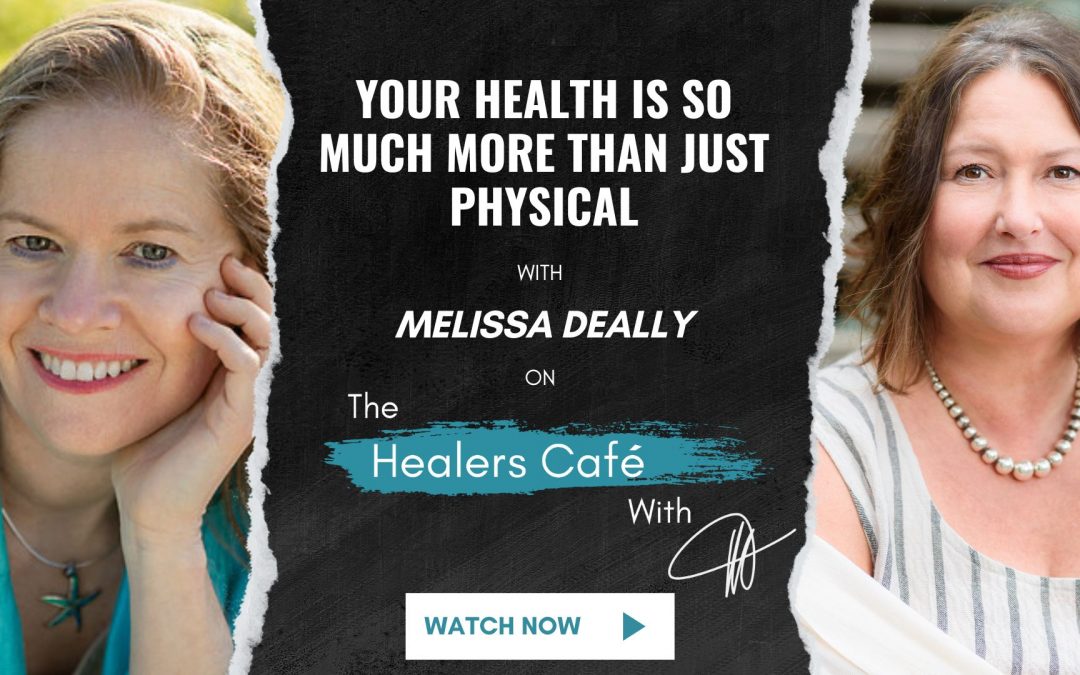
Melissa Deally
Your Health Is So Much More Than Just Physical with Melissa Deally on The Healers Café with Manon Bolliger
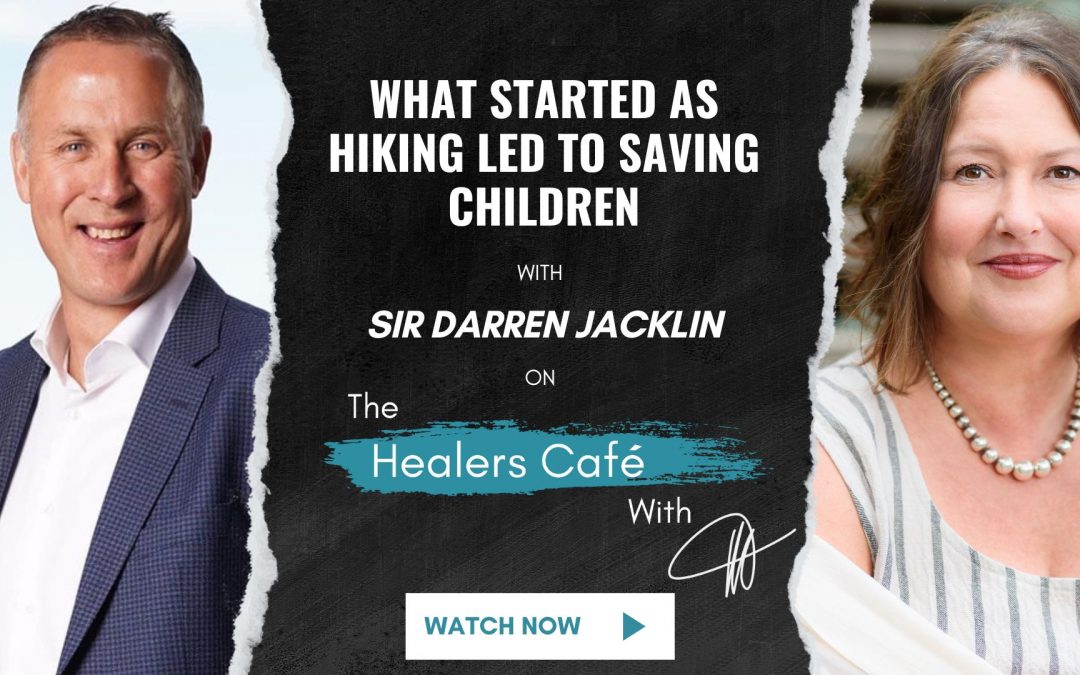
Sir Darren Jacklin
What Started as Hiking Led to Saving Children with Sir Darren Jacklin on The Healers Café with Manon Bolliger
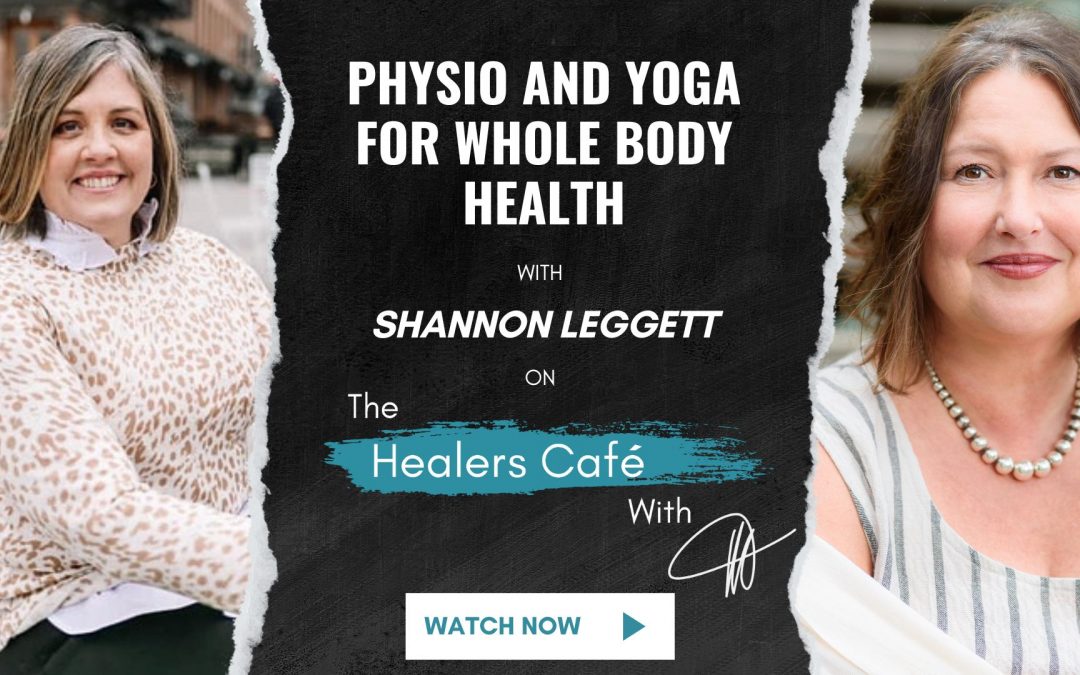
Shannon Leggett
Physio and Yoga for Whole Body Health – with Shannon Leggett on The Healers Café with Manon Bolliger
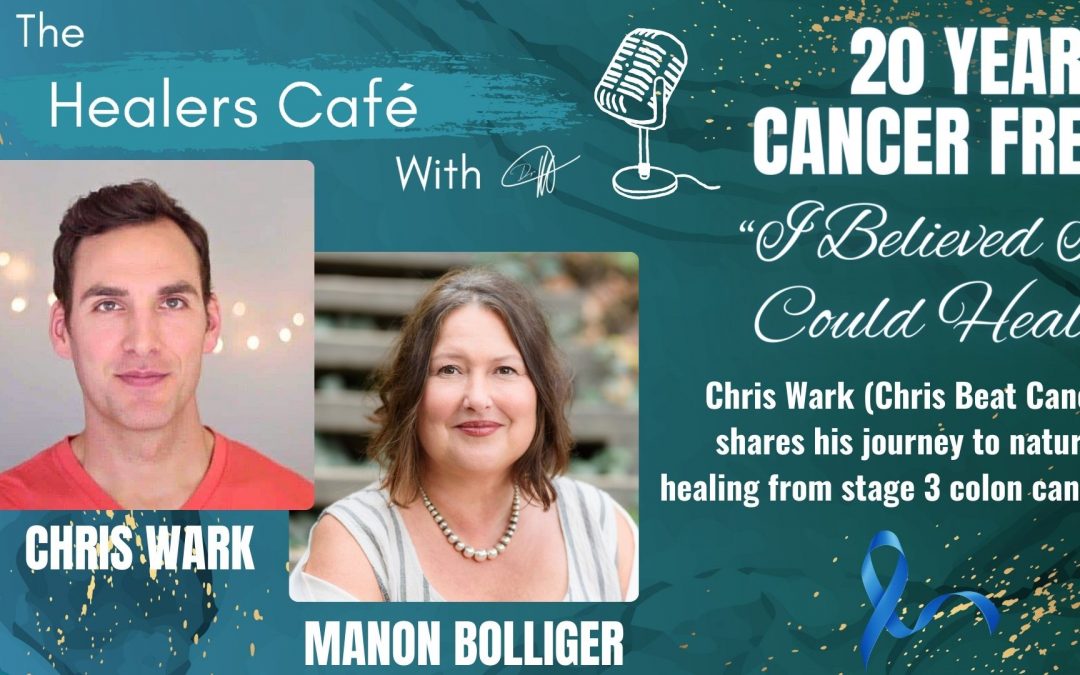
Chris Wark
20 Years Cancer Free “I Believed I Could Heal” – with Chris Wark on The Healers Café with Manon Bolliger
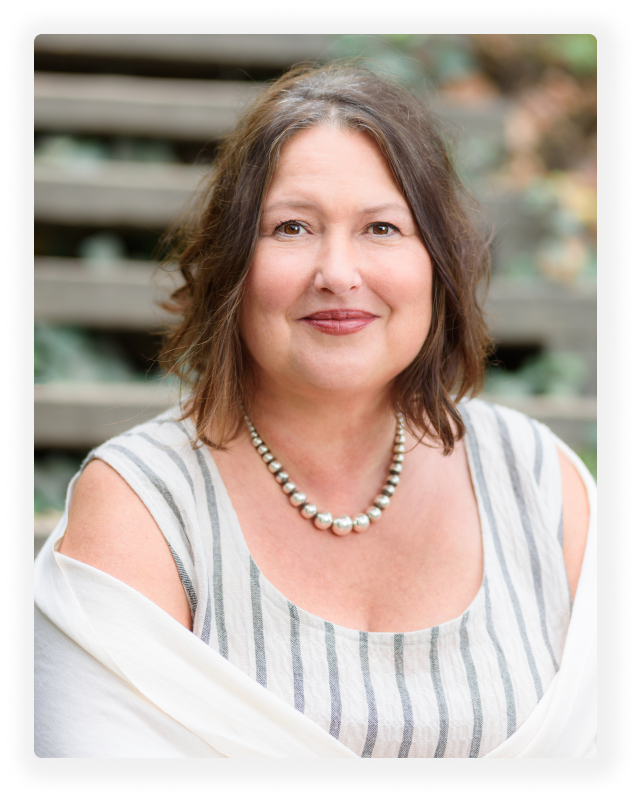
A Better Way To Connect With People
Manon is a newly retired Naturopathic Doctor, the Founder of Bowen College, an International Speaker, she did a TEDxTenayaPaseo (2021) talk “Your Body is Smarter Than You Think. Why Aren’t You Listening?” in Jan 2021, and is the author of 2 Amazon best-selling books “What Patient’s Don’t Say if Doctors Don’t Ask” & “A Healer in Every Household”.
FollOW MANON ON SOCIAL MEDIA
Manon Bolliger, FCAH, RBHT
Facilitator, Retired naturopath with 30+ years of practice, Business & Life Coach, International & TEDxTenayaPaseo (2021) Speaker, Educator, 2x Best Selling Author, Podcaster, Law Graduate and the CEO & Founder of The Bowen College Inc.
* Deregistered, revoked & retired naturopathic physician after 30 years of practice. Now resourceful & resolved to share with you all the tools to take care of your health & vitality!
![]()
